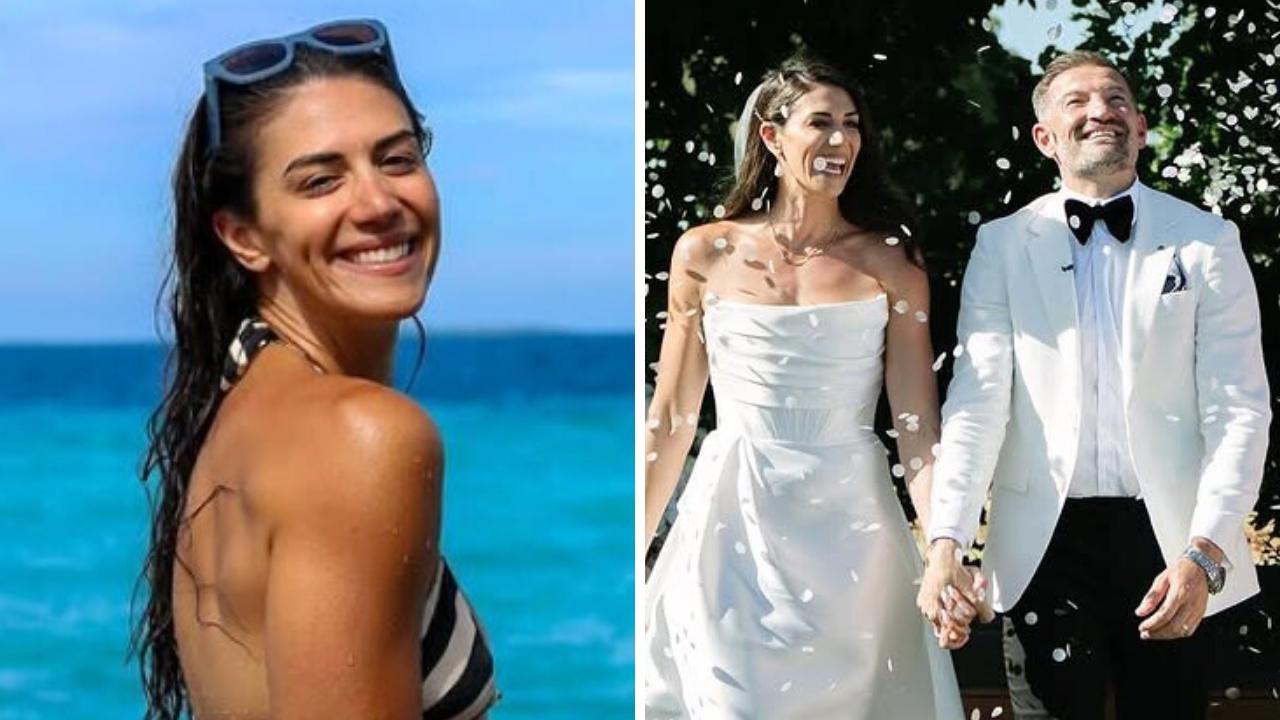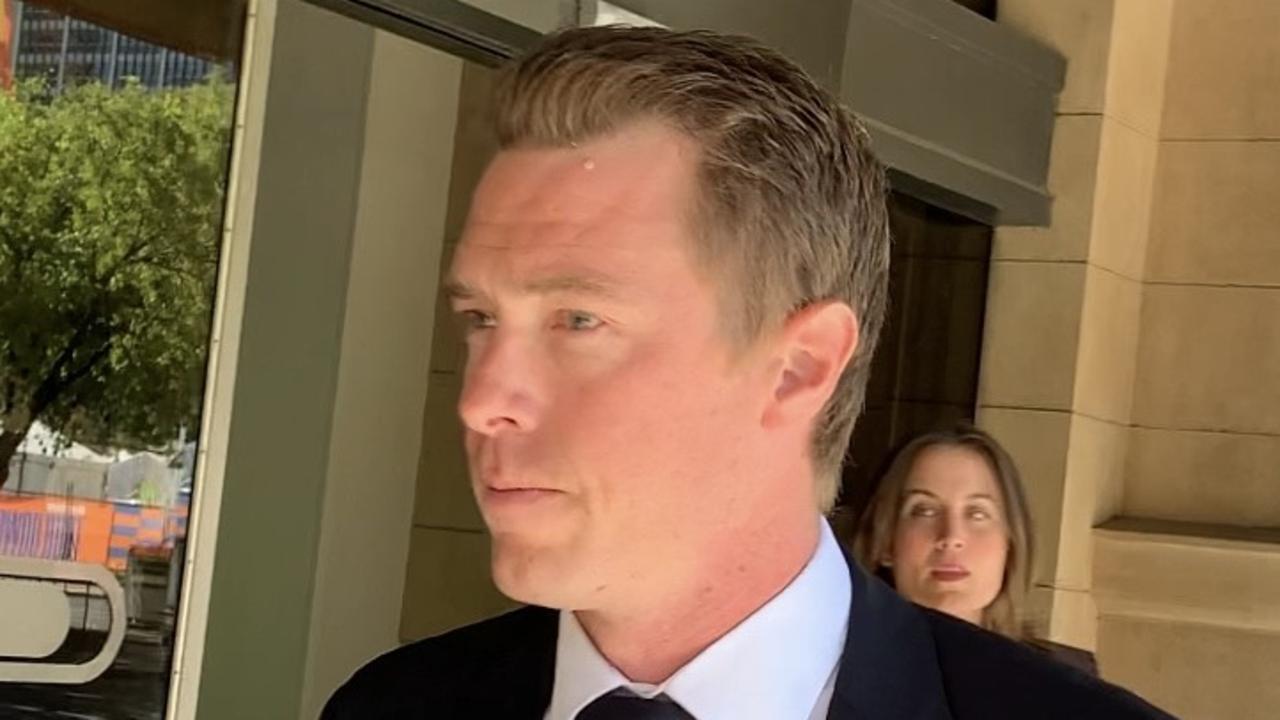Meet the Aussie Olympians who are doing it tough as they battle to get to Rio
SIMPLICE Ribouem is relying on Centrelink benefits to help him through his Olympic journey.
Olympics
Don't miss out on the headlines from Olympics. Followed categories will be added to My News.
SIMPLICE Ribouem is relying on Centrelink benefits to help him through his Olympic journey.
The problem is that he is an Olympian, he wants to work, but with elite sport comes the demands of training and time.
Ribouem recently tried to secure a job filling up pokie machines at Crown Casino, but was turned down when the weightlifter informed them of the requirements for time off to compete in the Olympic qualifying competition in Fiji and then in Rio.
The dual Commonwealth Games medallist also applied for Australia’s army reserve but the Cameroon-born athlete didn’t make the cut because his language and maths skills were not at the acceptable levels.
“It is very tough but I will do anything to represent my country,” he said.
While the big sports stars headed for Rio have already signed six-figure contracts with luxury car companies or become the faces of supermarket and sports apparel companies, the Olympic minnows are just trying to make ends meet.
Ribouem is sponsorless, has two little mouths to feed, Samuel, 4 and Nathan, 3, as well as wife Roni to support. Add to that he recently overcame malaria and is dealing with the death of his father Tomas Nkoubou Abong who died suddenly of a heart attack last year.
“I have been very down,” Ribouem, 33, said.
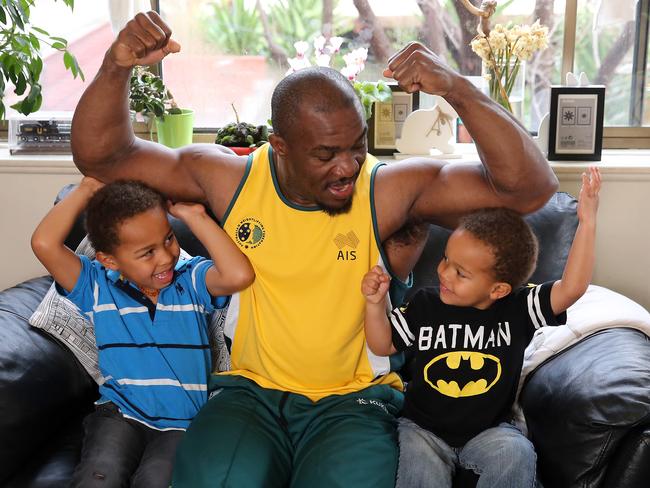
“There is a big hole in my heart but it hasn’t stopped my training, it hasn’t stopped me lifting heavy weights or stopped me from representing my country.”
Ribouem’s story is one of resilience — he once slept rough on a park bench in the Melbourne suburb of Brunswick when seeking asylum after the Commonwealth Games — and he is finally destined for the Olympic Games after missing out in 2008 and 2012.
A theme of personal and financial sacrifice peppers the Australian Olympic team.
Every athlete has naturally made concessions in their everyday life — and in many cases their parents have given up something for the chasing of dreams. In gymnast Danielle Prince’s case her parents sold the family home.
For Prince, when the hour and ten minutes commute to the gym to train under her coach Gina Pelsuo became too much, her parents Mark and Tess decided to sell their “beautiful” family home and “move over the other side of town”.
“I will never be able to pay them back — literally or emotionally,” Prince said. “Everything they have done for my career, the support, not only the love but the financial support. If there is an opportunity they will help me make that happen.”
Today her sports massage therapist mother works three jobs and her father Mark drives freight trains to help their daughter out with paying for overseas training camps.
They aren’t cheap.
Her most recent training camp for just over two weeks to Finland cost $12,500.
“You pay a lot of money for the coaches’ time, the training facility, you pay for choreography and you even pay for the music that your routine is choreographed to,” she said.
An individual song can cost as much as $470.
“It’s because the music has been cut by proper composer and put specifically for rhythmical gymnastics, so yeah it can get quite costly,” Price said.
Then there are the leotards.
Prince will spend nearly $8000 on her four leotards she is taking to Rio.
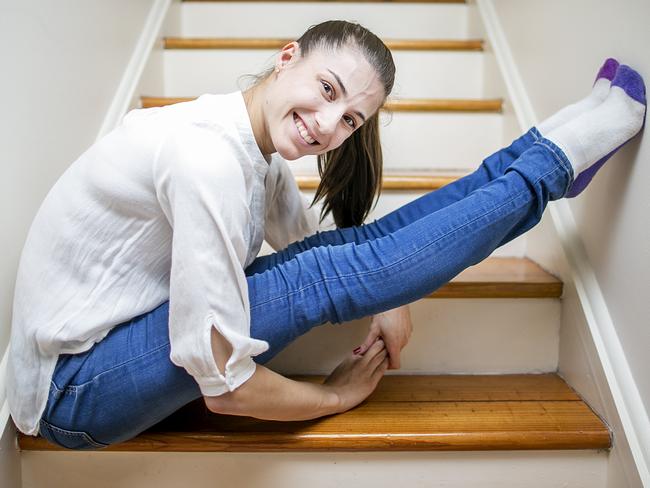
“A lot of people think we are crazy,” Prince said, laughing. “As a ballpark figure for a leotard of that standard it is around 1800 dollars. There’s a lot diamantes. A lot of sparkles — Swarovski crystals. There’s a lot of work that goes into them.”
The 24-year-old is thankful for Gymnastic Australia’s financial support but realises that there is much more to the chosen sport.
Prince still lives at home because she simply can’t afford to move out.
“Look it’s a little bit sad being a 24-year-old and living at home but I have the rest of my life to do all of those other things that 24-year-olds do,” she said.
She said the look on her parents Tess and Mark’s face when they finally booked their plane tickets for the Games in August is something she will never forget.
“When they booked their plane ticket to come and see me at the Olympics, that moment where my mum turned to me and said; it has all been worth it,” Prince said.
“That was amazing. For them to see me realise a goal that I set as an 11 year old, it is pretty amazing.”
Swimmer Matt Abood qualified for Rio in April but said the feeling was “amazing” for him and his loved ones. After Abood triumphantly hit the wall at the Olympic trials to book his ticket in the 50 metre freestyle, he looked to the stands in Adelaide and could see his wife Hayley breathing a huge sigh of relief. It was a joyous moment for the 29-year-old.
Four years earlier he had missed out on qualifying for the 50m freestyle at the London Games by the cruel and small margin of 0.02 seconds. That margin also left him financially destitute.
“After not making the London Olympics swim team, I had nothing,” Abood said. “Financially I wasn’t earning any money and that was pretty daunting.”
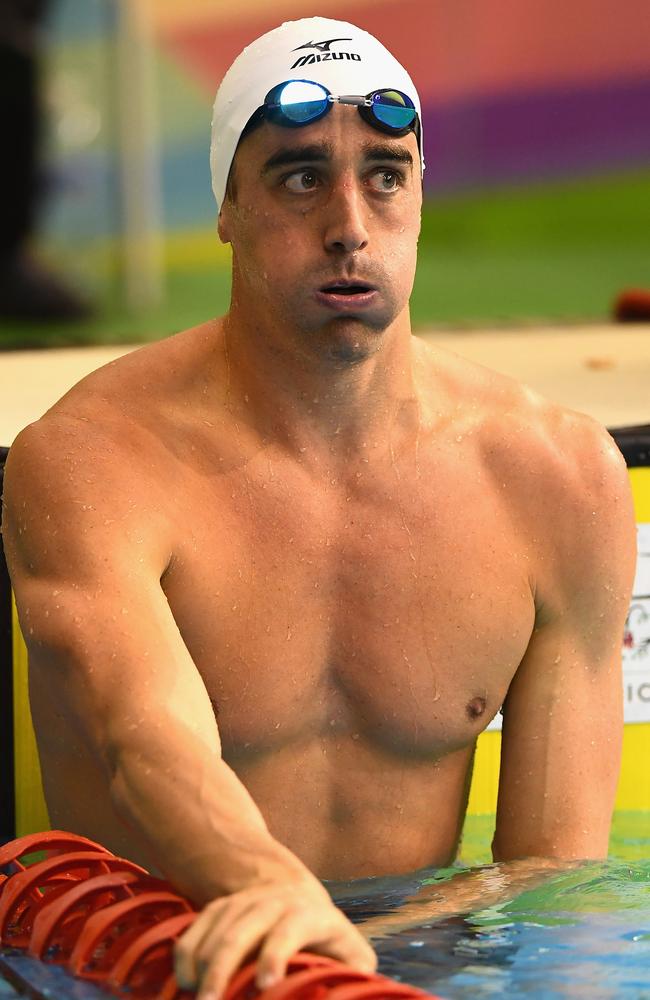
So, Abood rather than be defeated, went to the Commonwealth Bank armed with a “four-year plan” and a hope of a job. The bank liked the plan and gave the business student a part-time job.
But, then came the emotional sacrifice.
To reinvigorate himself and his swimming he switched coaches and moved to Canberra to train under Shannon Rollanson — without his new wife Hayley.
“I was super lucky that Hayley my wife just kicked me out the door in the end,” Abood said, laughing. “She knew that it was something that I had to do.” In Canberra he started training alongside a bunch of talented “young kids”, mostly teenagers, he felt good but he also had his doubts.
“It’s a big sacrifice moving away from your wife for 12 months and it’s the poorest decision I have made financially,”
Abood said. “Emotionally it is really taxing as well. There were definitely days where I was wondering; ‘what are you doing?’ Friends are starting to have families and build houses. The pure and simple things like wanting to have a coffee with Hayley in the morning — you find you long for …”
Come August, Abood will be the oldest rookie on the Australian swim team after qualifying in the 50m freestyle and the 4x100m freestyle team. He will again move back in with his parents for a short stint (”a humbling experience”) in Kingscliff and do the daily commute to train on the Gold Coast.
“Making all these changes and sacrifices, moving away from my wife, the financial sacrifice, it makes it so satisfying when those plans come off,” Abood said.
For 18-year-old runner Jessica Thornton her Rio Olympic selection is still unconfirmed but looking likely. She is just .13s off the qualifying time for the 400m and .06s for the 200m. She is expected to at least be part of the national 400-metre relay team after an impressive run at the nationals earlier this year. If she makes the Olympic team she will be the youngest member of the Australian Athletics team in Rio.
Yet the talented and well spoken teenager is sponsorless.
Her mother Sarah, a personal trainer at the Sydney Cricket Ground Trust gym, questions why big companies don’t want to sponsor more women in sport, including her daughter — a Youth Olympics gold medallist who was chosen by Olympic great Susie O’Neill to carry the flag at the closing ceremony at that event.
“I think being a female it is very hard to get a sponsorship,” Sarah said. “There are male athletes at the same age who have sponsorship yet haven’t done nearly as much as she is done.”
“It doesn’t make sense … it’s the way society is…”
“We have tried so many avenues for sponsorship … it’s quite frustrating.”
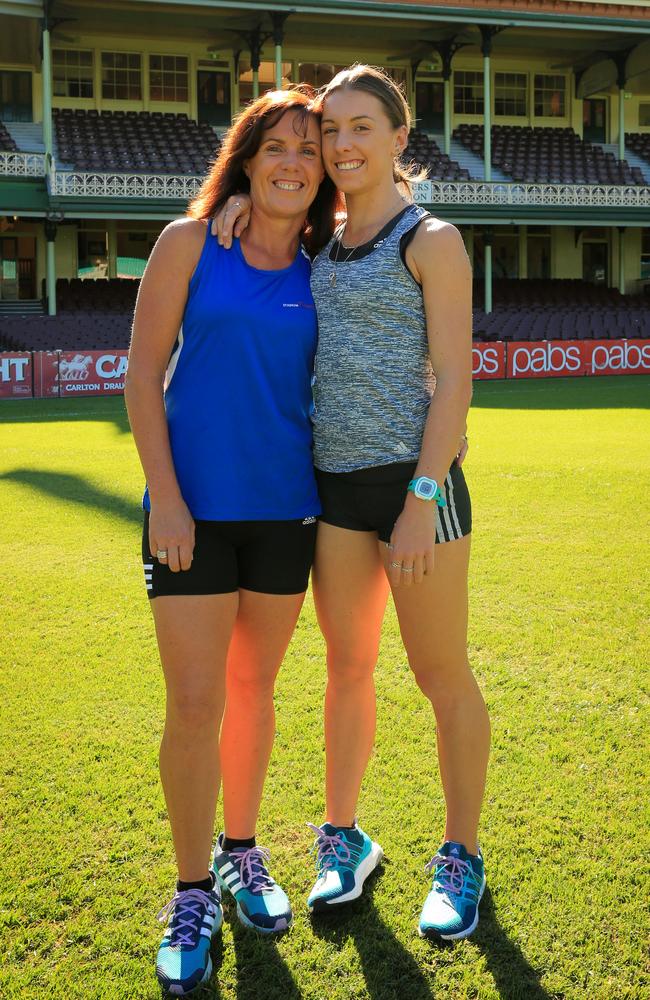
So many parents all across Australia get their children ready for sport on weekends and squeeze in training sessions around work and homework during weekdays.
Jessica’s parents help her financially to get her to training, competition, apparel and equipment, medical, as well flights and accommodation and they want to be by her side to help support her — to the extent they have taken out a bank loan — around $30,000 for travel to Europe for the World Junior Championships and then, hopefully, Rio.
“We’ve taken out a bank loan for this latest trip but it’s just what you’ve got to do,” her mother Sarah said.
“It’s more for the rest of the family to go and support her in Poland for the World Junior Championships and then Rio hopefully …
“It is supporting a great, healthy, sporty lifestyle — they are doing what they love — they are not involved in that other stuff that can get them in trouble. It’s not a sacrifice.”
Sarah says the family, husband Paul, sister Stephanie, 22, and brother Benjamin, 20, will be shelling out the $2300 for tickets to the 4x400m relay heats (a two and half-hour session) and another $2300 for the final if the team makes it.
Like many other athletes, the help they require comes from local organisations.
Jessica said she is thankful for her family’s constant support and for local organisations like the Coogee Life Saving Club which has been able to help her out.
“Our surf club have been helping pay training fees, that’s definitely a lot of help but it’s hard to go and ask people for money to help you go places,” she said. “I did get a Local Champion $500 Sporting Grant which helped pay for my travel to the National Junior Championships in Perth …”
Then there are competition entries.
“Colonial First State currently have a competition which Athletics Australia nominated me for and I have the chance to try and win $10,000.”
“I am doing something I love and want to do, I want to push myself to the next level.
“It can be pretty tough … but if it is something you love doing, you just put it all [the obstacles] to the side, and go for it. You just never give up.”

